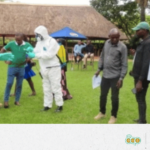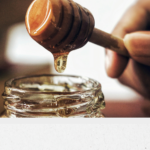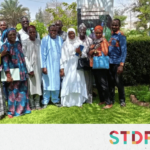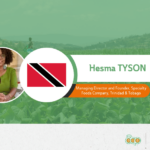Key messages and recommendations from the IPPC on COVID-19
- 27/03/2020
- Posted by: Gaetan Dermien
- Category: Uncategorized
The International Plant Protection Convention (IPPC) Secretariat has published its key messages addressing the COVID-19 outbreak and lessons for the global phytosanitary community, briefly summarised here.
1. Prevention is always better than cure!
The COVID-19 global outbreak is showing the world how science-based preventive actions, including quarantine measures to contain invasive virus threats, are indispensable to protect the health of people, animals and plants alike. We should take particular note of this in the International Year of Plant Health 2020.
2. International travel and trade: viruses do not carry passports, but plants and other regulated goods require phytosanitary certificates
Viruses and diseases are most often spread unintentionally by people and goods moving in trade. In the area of plant health, we must also facilitate the safe trade of plants, plant products and other items, such as sea containers that can allow pests to be spread. Detection and quarantine are indispensable security measures to contain an epidemic – be it a human, animal or plant health emergency.
3. What are the risks for inspectors of consignments at borders?
For health and safety concerns, please refer to the WHO Guidelines on how to protect human health during the COVID-19 outbreak. The IPPC Secretariat suggests making use of the ePhyto electronic certification system wherever possible.
4. What happens if a phytosanitary certificate for a consignment is delayed?
Where possible, the IPPC Secretariat encourages countries to be as flexible as possible. Due to the numerous cancellations of flights and subsequent port delays caused by the coronavirus, some IPPC members are experiencing a situation in which the phytosanitary certificate (PC) for a consignment does not arrive in time. Some countries are encouraging their trading partners to send physical PCs with consignments to avoid delays.
The IPPC Secretariat encourages countries to make maximum use of the IPPC ePhyto system, especially for countries that can receive PCs electronically and have the infrastructure to go paperless. Countries should notify the IPPC of their status in this regard via the ePhyto Hub. Countries that have not yet begun using the system are encouraged to investigate implementing ePhyto as a possible means of ensuring the efficient and timely delivery of consignments.
5. Protecting plant health is essential for food security, particularly in emergency situations
Plants are a primary source of income for nearly half of the global population and make up 80% of the food we eat. One of the potential consequences of this global emergency is the possibility of disrupted trade, which could compromise access to a safe and stable supply of food. It is particularly important at this time to not let down our guard and always remember that a threat to plant health is a threat to the health and prosperity of people, especially the most vulnerable.
6. Pest outbreaks and economic losses: “Pay a little now or pay a lot more later”
Don’t wait – act now to prevent pest outbreaks! If infections/infestations and outbreaks affecting both human and plant health are not detected and controlled in time, the eradication of a disease can take several years and cost millions of dollars, if it can be contained at all.
7. Health is a global issue: the crucial role of the international community
Global coordination is essential to tackle COVID-19. It is time for the international community to act more decisively in a coordinated manner. The plant health community can learn a lot from this – it is important for countries to follow the IPPC International Standards for Phytosanitary Measures, harmonising national measures at the global level.





![EU and GB approval changes (August-November 2024) 9-FFM+-[ENG]](https://news.colead.link/wp-content/uploads/2024/06/9-FFM-ENG-150x150.jpg)